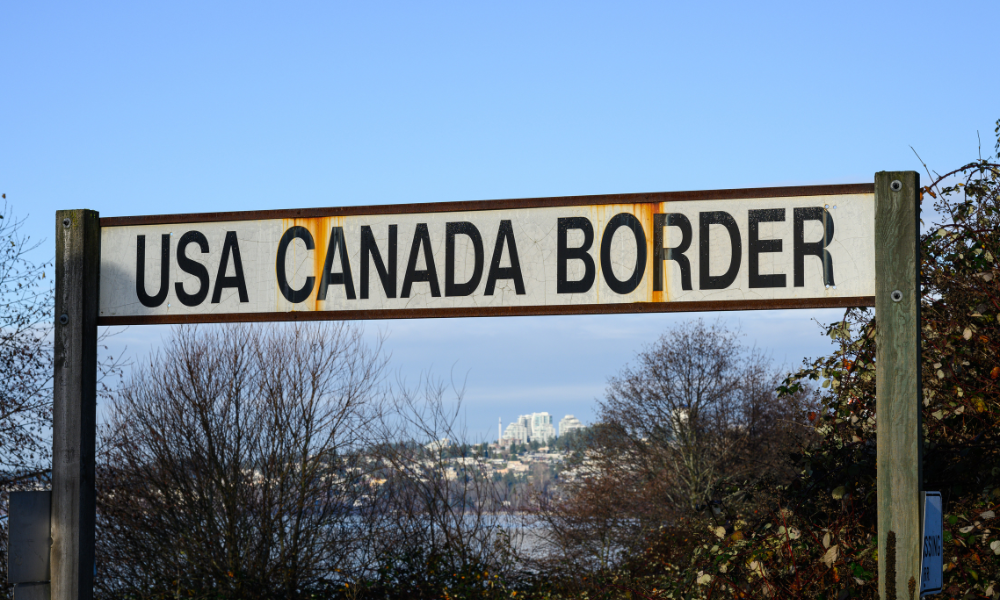
Immigration lawyer advises non-U.S. citizens — including Canadians with work visas — to think twice before leaving country

HR professionals and employers with staff traveling to the U.S. should be aware of tightening immigration enforcement, following the high-profile case of a Vancouver woman detained for nearly two weeks over a visa denial.
Jasmine Mooney, a businesswoman and former actress, attempted to enter the U.S. at a border crossing near San Diego earlier this month but was detained for about 12 days before being sent back to Canada, according to CTV News.
Her case highlights growing concerns among immigration experts about the increasing challenges faced by Canadians crossing the border for work.
According to U.S. immigration lawyer Jim Hacking, Mooney’s experience is part of a broader trend in which individuals “with varying degrees of immigration status” — including at least one permanent resident — have been detained or deported under conditions not commonly seen before, according to the CTV News report.
Mooney’s family has described her time in custody as “inhumane,” detailing how she was held in a privately run detention center in Arizona, where 30 individuals were confined to a single cell with limited resources. She was initially stopped at the U.S.-Mexico border on March 3 before returning to Vancouver late on March 16.
U.S. Immigration and Customs Enforcement (ICE) attributed Mooney’s detention to a January executive order by President Donald Trump. Hacking describes the move as a “full-tilt assault on legal immigration,” according to CTV News.
Vancouver-based immigration lawyer Richard Kurland warns that Canadians should brace for more difficulties when entering the U.S. in the coming months, emphasizing that border officers are increasingly focused on preventing entry rather than facilitating it.
Hacking explains that Mooney was applying for a TN visa, a work visa available under a trade agreement with the U.S. that allows certain Canadian and Mexican professionals to have their applications processed directly at the border, says the news report.
“In the 17 years I’ve been practicing immigration law, I’ve never heard of a TN visa holder being detained for days on end and not being allowed to enter,” says Hacking, founder of Hacking Immigration Law in St. Louis, Mo.
“She was technically outside the United States at the Port of Entry trying to obtain admission, and what should have happened is they should have simply refused her,” he told CTV News.
“But the idea that they would take her into custody and detain her under what she describes as pretty harsh conditions is part of this overall plan they have to deter all immigration to the United States. They don’t want people coming to the United States.”
Hacking advises anyone who is not a U.S. citizen— including Canadians with work visas— to think twice before leaving the country, as they may not be permitted to re-enter.
“I have lots of clients from Canada,” Hacking says in the CTV News report. “I do believe that many Canadians have taken it way too casually with their immigration status over the years.”
Kurland cautions that Canadians seeking entry to the U.S. must be upfront with border officials and should not assume that some crossings are easier than others.
Mooney had initially tried to enter the U.S. from British Columbia before traveling through Mexico, where she had previously obtained entry successfully. However, the inconsistency in border enforcement means that a situation approved one day could be denied the next, said CTV News.
“It’s not unusual for the identical fact pattern on Monday to be accepted by an officer, and on Tuesday not to be accepted by an officer (at the border),” Kurland says.
For HR professionals managing international employees, Kurland recommends that anyone instructed by U.S. border officials to have their application processed at a consulate or embassy should comply to avoid complications.
Additionally, he told CTV News that Trump has previously used immigration policy as a bargaining tool in trade negotiations. The current wave of visa denials and detentions could be part of a similar strategy.
“That ball game changed, January 2025,” Kurland says. “The administration has an overwhelming political mandate to slam down hard on would-be immigration law breakers, and this is an illustration of that political mandate.”